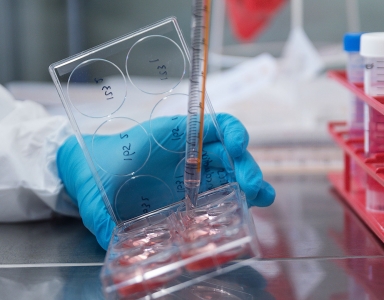University Medical Center Groningen (UMCG) – NWO Open Technology
The Dutch NWO Open Technology Programme encourages excellent research that can potentially be implemented in practical applications. It provides an accessible avenue for companies and organisations to engage in scientific research that yields usable knowledge. Prof. Jon Laman of the University Medical Center Groningen has received a NWO Open Technology grant to address the critical need for robust biomarkers in chronic inflammatory diseases and therapy monitoring.
Unleashing Bacterial Triggers as Biomarkers for Chronic Inflammation
Chronic inflammation is a significant factor in the development and progression of various diseases, including inflammatory bowel disease (IBD), alcoholic and non-alcoholic steatohepatitis (ASH and NASH), multiple sclerosis (MS), Alzheimer’s disease (AD), and even aging. Moreover, the translocation of inflammatory bacterial products from the gut, resulting from a compromised gut barrier, plays a crucial role in provoking inflammation. However, the mechanisms by which these bacterial compounds and the immune response contribute to inflammation and respond to therapy remain poorly understood. Prof. Jon Laman aims to tap into the untapped potential of these bacterial triggers and translate them into valuable biomarkers. The project is a collaboration between experts from the University Medical Center Groningen and the Max Planck Institute in Potsdam, who are working together to advance the field through the development of advanced peptide array technology using cutting-edge chemical engineering techniques. The primary goal of the project is to unravel antibody responses against key bacterial cell wall components called peptidoglycans (PGN) and utilize antibody profiles as highly discriminatory biomarkers.

Cross-Disciplinary Collaboration for socio-economic impact
The collaborative efforts of this cross-disciplinary project team, which combines cutting-edge chemical engineering with immunology and microbiology, hold great promise in the development of antibody biomarkers for chronic diseases. Clinician-investigators from four specialized disciplines, including gastroenterology, neurology, dermatology, and anesthesiology, contribute their extensive expertise and well-characterized patient samples. To ensure effective translation and relevance, the project benefits from an expert User Committee, composed of end-users such as diagnostic companies, laboratories, clinicians, patients, and biobanks, as well as intermediate user companies specializing in glycopeptide arrays.
The ultimate outcome of this project will be the development of a prototype high-density PGN glycopeptide array, which will subsequently be refined into a marketable serological test system. The potential socio-economic impact of this project is enormous, with the ability to transform the diagnosis and monitoring of chronic inflammatory diseases, ultimately leading to improved patient care and outcomes.
NWO OTP grant application: support by Hezelburcht
The NWO Open Technology grant awarded to this pioneering project reflects the recognition and support for cutting-edge research endeavours that hold immense potential for scientific advancement and societal benefit. Hezelburcht reviewed the application for Prof. Jon Laman and the consortium and provided strategic advice. We wish prof. Jon Laman good luck with the further development of this beautiful project!
Support by the Hezelburcht expert in the grant writing stage has been most valuable, notably for the transparent integration of complex combinatorial chemistry and immunology into the condensed project format. - Prof. Jon Laman

